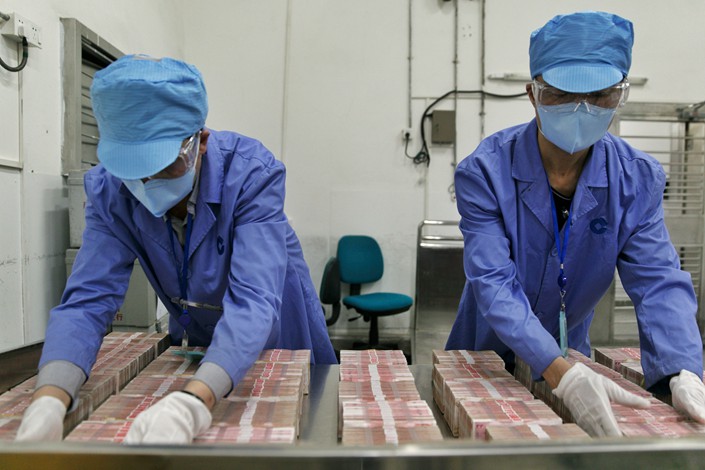Blog: Chinese Economists Clash Over Monetization of Fiscal Deficit, Special Treasury Bonds

Zhang Qizhi and Gavin Cross are researchers with Caixin Global Intelligence, the strategic advisory arm of Caixin Global.
A quite heated debate over monetization of China’s fiscal deficit and special treasury bonds (STB) has erupted since May 14, with heavy hitters on both sides. It is unusual for a relatively theoretic debate to enter the public’s view. Perhaps because there is so much at risk — a truly “trillion dollar” question, as the government work report issued today announced 1 trillion yuan ($140 billion) quota for STBs this year.
- PODCAST
- MOST POPULAR




